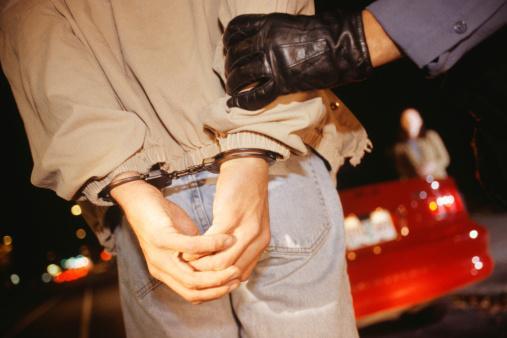Recent Blog Posts
The Entrapment Defense in Illinois
 The idea of entrapment in criminal law is a valuable check on police power, but its common use in the media and fiction has led to a variety of misconceptions about what is and is not entrapment. Illinois law recognizes the idea of entrapment, and defines it as a public official's inciting the defendant to commit a crime that they were not otherwise predisposed to commit. In plain language, entrapment happens when a police officer convinces a person to commit a crime that they would not have otherwise committed.
The idea of entrapment in criminal law is a valuable check on police power, but its common use in the media and fiction has led to a variety of misconceptions about what is and is not entrapment. Illinois law recognizes the idea of entrapment, and defines it as a public official's inciting the defendant to commit a crime that they were not otherwise predisposed to commit. In plain language, entrapment happens when a police officer convinces a person to commit a crime that they would not have otherwise committed.
From a legal standpoint, entrapment is an "affirmative defense." Affirmative defenses are legal defenses to a crime that acknowledge that the defendant committed the criminal act, but that they should not be punished because of other circumstances, in this case the police officer's involvement. Importantly, affirmative defenses are not the same thing as civil claims, which means that a defendant cannot bring a separate suit against the officer for the entrapment. It merely protects the defendant from criminal punishment. It is also important to understand that this defense only applies to public officers. If a private citizen convinced the defendant to commit the crime, then that is not entrapment. Although if the private party used force to convince the defendant, then other affirmative defenses may be available.
Understanding Search Warrants in Illinois
 The U.S. Constitution provides people with a variety of rights and protections with relation to law enforcement and the criminal justice system. One of the most important of these rights is the protection from unlawful searches provided by the Fourth Amendment. Usually, what separates a lawful search from an unlawful one is whether the police had a warrant to perform the search. Whether a search is performed with a valid warrant can make all the difference in the outcome of a criminal case because of a legal doctrine known as the "exclusionary rule."
The U.S. Constitution provides people with a variety of rights and protections with relation to law enforcement and the criminal justice system. One of the most important of these rights is the protection from unlawful searches provided by the Fourth Amendment. Usually, what separates a lawful search from an unlawful one is whether the police had a warrant to perform the search. Whether a search is performed with a valid warrant can make all the difference in the outcome of a criminal case because of a legal doctrine known as the "exclusionary rule."
The exclusionary rule is a rule of evidence that governs whether the prosecutor is allowed to use evidence during a trial. Its name comes from the fact that it excludes any evidence that was recovered during an unlawful search. It also excludes from the trial any evidence that the police found because of evidence they uncovered during an illegal search. This rule is designed to discourage police from performing these sorts of searches because anything they discover will be useless to the prosecution at trial.
Illinois Certificates of Good Conduct
 Many people with criminal records have trouble finding good jobs because the record makes them less attractive to potential employers. Some people can solve this problem using remedies like getting their records expunged or having them sealed. However, not everyone qualifies for those processes either because their record includes convictions or because their crimes were too serious. In these cases, Illinois law provides another option, the Certificate of Good Conduct.
Many people with criminal records have trouble finding good jobs because the record makes them less attractive to potential employers. Some people can solve this problem using remedies like getting their records expunged or having them sealed. However, not everyone qualifies for those processes either because their record includes convictions or because their crimes were too serious. In these cases, Illinois law provides another option, the Certificate of Good Conduct.
What Certificates of Good Conduct Do
Unlike expungement or record sealing, which prevents many employers from seeing the criminal record, the Certificate of Good Conduct leaves the record publicly available. However, it provides an official finding by the court that the offender has been reformed, which can often make employers more willing to hire people with criminal records. Beyond that, the Certificate helps with employment in other ways. For instance, there are certain jobs that Illinois law forbids people with criminal records to hold. These Certificates allow the court to override those laws, so that the person can take the job despite their record. Additionally, the Certificate makes it harder for employers to be sued based on the actions of the employee, which can put many businesses at ease.
New Law Provides Judges More Information about Psychiatric Evaluations
 One of the prerequisites for a defendant's being tried for a crime is that he or she is mentally and physically fit to do so. From a legal standpoint, fitness means that the person is able to understand what is going on in the legal proceedings, and he or she is able to assist in his or her own defense. Illinois courts believe it is important that the accused be able to understand and engage with the legal process so that they can be sure of getting the fairest trial possible. Now, Illinois has passed a new law that provides judges with more information about these psychiatric evaluations by requiring the analysts to turn over their notes and other background materials to the court, a requirement that is soon expected to spread to other states.
One of the prerequisites for a defendant's being tried for a crime is that he or she is mentally and physically fit to do so. From a legal standpoint, fitness means that the person is able to understand what is going on in the legal proceedings, and he or she is able to assist in his or her own defense. Illinois courts believe it is important that the accused be able to understand and engage with the legal process so that they can be sure of getting the fairest trial possible. Now, Illinois has passed a new law that provides judges with more information about these psychiatric evaluations by requiring the analysts to turn over their notes and other background materials to the court, a requirement that is soon expected to spread to other states.
No Refusal DUI Checkpoints Raise Legal Questions
 Illinois is one of nine states receiving federal funding to participate in the National Highway Traffic Safety Administration's "No Refusal" initiative. The initiative centers around police setting up so-called No Refusal checkpoints, which are named as such because the police there have access to a streamlined procedure for acquiring search warrants. This allows them to perform blood alcohol concentration (BAC) tests over a driver's objection. However, some states have refused to implement these DUI checkpoints, citing concerns that they may be violating their citizen's Fourth Amendment rights, which protect them from unreasonable searches and seizures.
What No Refusal Checkpoints Are
Illinois is one of nine states receiving federal funding to participate in the National Highway Traffic Safety Administration's "No Refusal" initiative. The initiative centers around police setting up so-called No Refusal checkpoints, which are named as such because the police there have access to a streamlined procedure for acquiring search warrants. This allows them to perform blood alcohol concentration (BAC) tests over a driver's objection. However, some states have refused to implement these DUI checkpoints, citing concerns that they may be violating their citizen's Fourth Amendment rights, which protect them from unreasonable searches and seizures.
What No Refusal Checkpoints Are
When a person refuses to consent to a BAC test, the police have the option of seeking a warrant from a judge to get the person's blood tested to determine the individual’s alcohol level. No refusal checkpoints are named that way because of a specialized procedure that the police have available to them to order blood tests for drivers who refuse to take a Breathalyzer test. The judges, who are ordinarily on call, are made aware that they will be participating in a No Refusal weekend so that they can prepare to provide police with speedy access to warrants.
Civil Forfeitures on the Rise
 Many people assume that financial penalties for crimes, like fines, cannot take effect until after a person has been convicted of a crime, but that is not necessarily the case. This is because of a new technique police departments are using known as civil forfeiture, which allows police to seize assets, such as cash, that they believe were used for a criminal purpose. Civil forfeiture is not technically a punishment for a crime, and police may seize assets under it without even having to press criminal charges.
Many people assume that financial penalties for crimes, like fines, cannot take effect until after a person has been convicted of a crime, but that is not necessarily the case. This is because of a new technique police departments are using known as civil forfeiture, which allows police to seize assets, such as cash, that they believe were used for a criminal purpose. Civil forfeiture is not technically a punishment for a crime, and police may seize assets under it without even having to press criminal charges.
This seizure process was developed in the 1980s as a method of combating drug cartels by depriving them of funds and assets, without having to go through a formal criminal process. However, following 9/11 and the increased police authority that came with it, civil forfeitures have been on the rise. In fact, according to a Washington Post report relayed by the Chicago Tribune, police have seized over $2.5 billion in cash since September 11th , 2001, often during traffic stops. With civil forfeitures becoming a more common issue, it is important for people to understand how to protect themselves and how to challenge a forfeiture should one occur.
DUI Penalties in Illinois
 The state of Illinois considers drunk driving to be a serious crime, and with good reason. According to statistics compiled by the Illinois Secretary of State, hundreds of people every year lose their lives in accidents related to drunk driving. With that in mind, the state imposes severe penalties like jail time, fines, and license suspensions for anyone caught driving under the influence. Even people who do not test positive for alcohol and instead simply refuse to take the breathalyzer test can still face serious penalties for doing so.
The state of Illinois considers drunk driving to be a serious crime, and with good reason. According to statistics compiled by the Illinois Secretary of State, hundreds of people every year lose their lives in accidents related to drunk driving. With that in mind, the state imposes severe penalties like jail time, fines, and license suspensions for anyone caught driving under the influence. Even people who do not test positive for alcohol and instead simply refuse to take the breathalyzer test can still face serious penalties for doing so.
Penalties for Drunk Driving
In Illinois, drunk driving penalties start to occur once a person's blood alcohol content passes 0.08 percent, provided that they are over the age of 21. Underage drinkers trigger separate zero-tolerance penalties if they blow anything above a 0.00. Assuming the driver is of age, the severity of the DUI punishments depends on how many DUIs the person has had in the past. For a first offense, the person can find themselves in jail for up to a year, along with a possible fine of up to $2,500. Additionally, first-time DUI convictions result in a license suspension for at least one year. Furthermore, if the person's BAC is more than twice the legal limit, they face a mandatory minimum fine of $500, along with 100 hours of community service.
What Happens when Probation is Violated in Illinois?
 When a defendant is charged with a probation violation, it means he or she has failed to meet some requirement or condition of a criminal sentence already imposed upon them. The state can bring a Petition to Revoke Probation in order to have the offender’s probation officially revoked by the court and have the offender incarcerated as a result of the violation. These charges are especially serious since they inherently involve the commission of an earlier crime for which the defendant was either found guilty or pleaded guilty and sentenced.
When a defendant is charged with a probation violation, it means he or she has failed to meet some requirement or condition of a criminal sentence already imposed upon them. The state can bring a Petition to Revoke Probation in order to have the offender’s probation officially revoked by the court and have the offender incarcerated as a result of the violation. These charges are especially serious since they inherently involve the commission of an earlier crime for which the defendant was either found guilty or pleaded guilty and sentenced.
What to Expect Upon Violation of Probation
If the prosecutor files a Petition to Revoke Probation, the offender has a right to deny the charges and have a hearing, at which the court will hear evidence tending to prove a violation occurred. A violation can result from any number of acts, including commission of a new crime, failure to report to a probation officer, and testing positive for drugs or alcohol when they have been expressly prohibited. The offender is entitled to be represented by legal counsel at the hearing on the state’s motion, in addition to having legal representation at the sentencing phase if the court finds they are, in fact, in violation of the terms and conditions of their probation or supervisory portion of their sentence.







